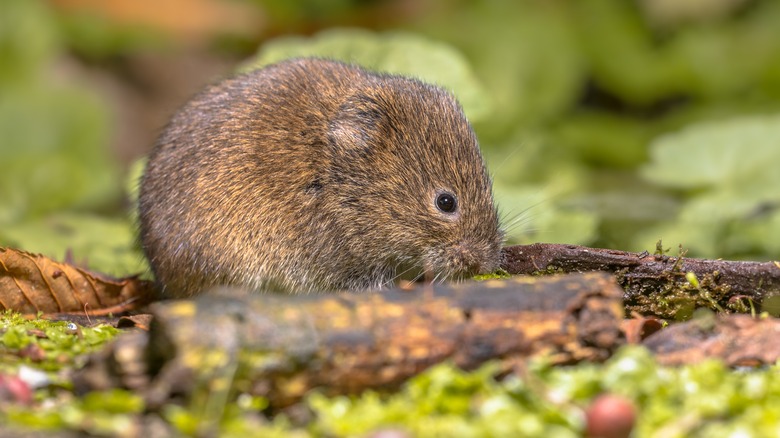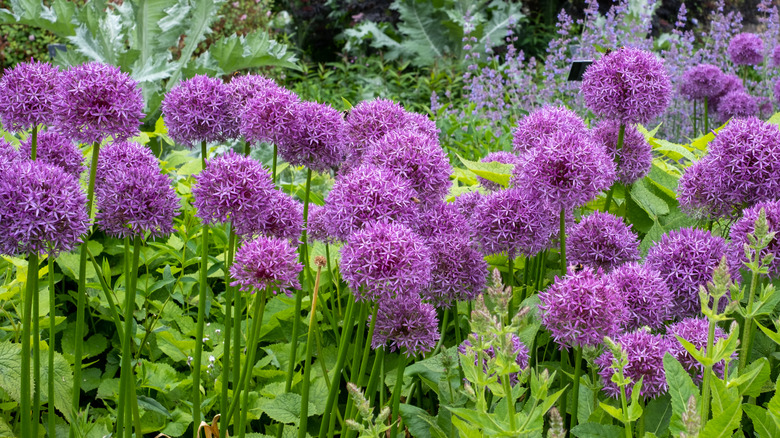Keep Voles Out Of Your Garden By Planting This Stunning Purple Flower
Voles (also known as field mice) may look cute and tiny; however, despite their innocent appearance, these critters can cause a lot of damage in a garden. This is especially true because voles are not picky eaters and are just as likely to munch on the roots and bulbs of vegetables as if they were flowers. In fact, these little varmints have been known to destroy the bulbs of ornamental flowers like hostas, tulips, and hydrangeas. This is especially annoying because bulb flowers like these are meant to be perennials that come back year after year, but that can't happen if an army of voles digs down and eats all the bulbs each winter.
Luckily, there is a solution, and it involves adding some plants that naturally deter pests like voles to your garden. And for these mouse-like critters, the best deterrent is the strong scent of alliums. The allium family includes common vegetables like chives, onions, and garlic; however, there are also plenty of beautiful ornamental alliums that produce giant purple blooms and are great at repelling voles. Because of this, ornamental alliums are the perfect addition to your perennial flower beds to help protect your bulbs from ravenous field mice.
Adding ornamental alliums to your garden
Most ornamental alliums are able to grow in zones 4 to 9 and are also perennials that thrive when planted in mixed beds. In fact, to keep the voles away, it's a good idea to mix your alliums with other bulbs so that the voles are offended by their scent instead of enticed by the sweet smell of your flowers. Ornamental alliums can also help to deter other pests like aphids and Japanese beetles.
There are many different types of ornamental alliums, but the most popular typically produce large, ball-shaped purple blossoms, like the gladiator, globemaster, purple sensation, and star of Persia. Ornamental alliums typically grow quite high (some varieties can even reach 4 feet) and tend to bloom in late spring with the last of the tulips and the start of the irises. But the best thing about alliums (besides their vole-fighting powers) is that they are pretty low-maintenance and tend to do well without much watering, fertilizer, or weeding.

